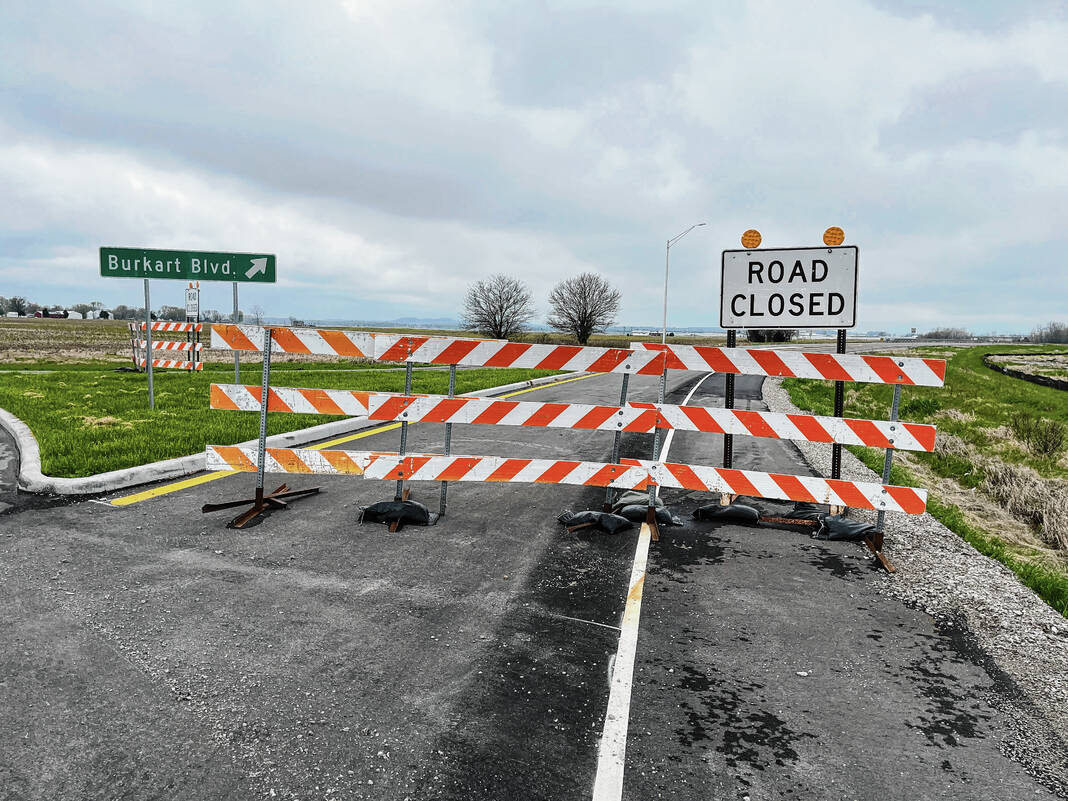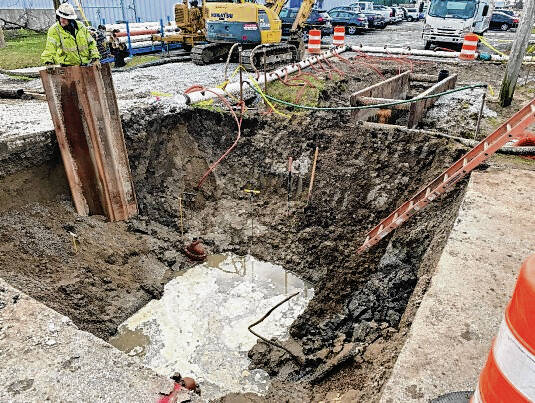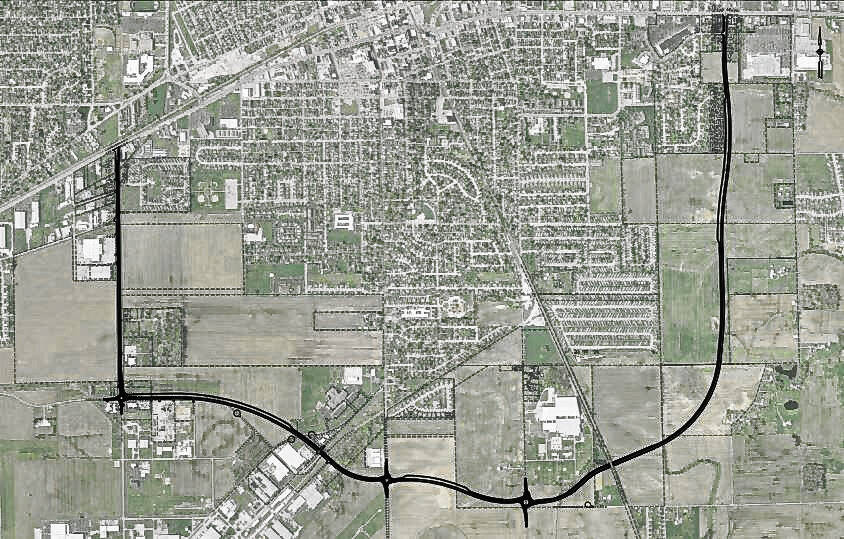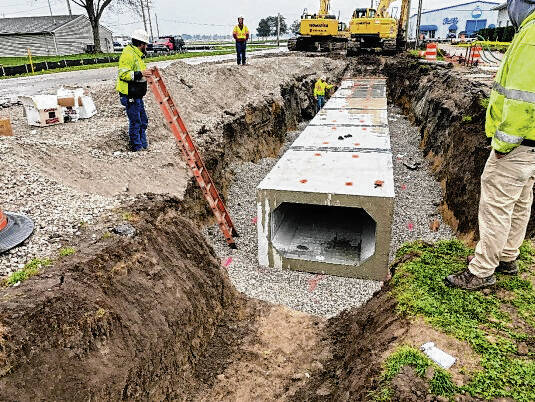
A new bypass is currently being constructed to connect Airport Road to the roundabout on South O’Brien Street so drivers can get around downtown Seymour.
Aubrey Woods

A waterline being relocated near the intersection of G Avenue and Airport Road in Seymour. The relocation was done to start roadway construction for Phase 2 of the Burkart Boulevard South Bypass project.
Submitted photo

A map showing where the Burkart Boulevard South Bypass project will go.
Submitted photo

A box culvert being installed along G Avenue in Seymour as a part of Phase 2 of the Burkart Boulevard South Bypass project.
Submitted photo
The third and final phase of the Burkart Boulevard South Bypass project is on track to be finished by the end of 2023.
Phase 1 was completed in October 2021 and involved the construction of the bypass from Tipton Street to South O’Brien Street. More than 2 miles of new road was created, and a 12-foot-wide people trail also was constructed along the new roadway.
Phase 3 was finished in September 2020 and saw the reconstruction of Airport Road from where the bypass connects to U.S. 50 on the west side of the city to G Avenue in the Freeman Field Industrial Park.
Phase 2, the final phase, is currently underway and connects the bypass from the roundabout on South O’Brien Street west to Airport Road.
City Public Information Specialist January Rutherford said final portion of the project known as phase 2 is expected to be completed by Oct. 31, 2023.
City Engineer Bernie Hauersperger said the work that has been done on the current phase at this time has mainly focused on relocating utilities. That work is basically done, he said.
That work has included Duke Energy power lines being relocated due to the roundabouts in the area, Metronet relocating fiberoptic lines, Frontier relocating their facilities and sewer work.
Hauersperger said 40% of Phase 2 has been completed, but that percentage is based on time.
Financially, he said, 8% of the project’s total costs have been spent so far and 90% of the project is still to come since construction costs are paid for once materials are placed.
Since utilities are almost entirely relocated, most of the work done this summer will be roadway construction.
The only delays from the project have come from inclement weather.
“Some of this stuff is underground cabling,” Hauersperger said. “No one likes working in the trench when it’s completely saturated.”
City residents will be able to get to work or around town easier once the project is complete, Hauersperger said.
“It may not seem that super critical to a lot of people, but if you’re working at Freeman Field or trying to get around town, that’s going to be a smooth way to get back and forth from work,” he said.
The bypass may even benefit people coming in from out of town.
“I do think Brownstown and anyone else out west might be wanting to use (the bypass) if it’s closer to rush hour in Seymour,” Hauersperger said.
Once the project is complete, the city will monitor traffic on the bypass and see what can be improved.
“We want to take a year off, open it up to traffic and try to find out what the next benefit that Seymour could use that could connect to this,” Hauersperger said.
The city engineer thanked the Indiana Department of Transportation for its help with the project.
“INDOT has treated us well here and has walked us through some areas that I think have helped Seymour quite a bit,” he said.
The total cost of all three phases of the project is approximately $30 million. Around $6 million, or 20%, is coming from the Seymour Redevelopment Commission.
Phase 1 of the project costed $17.23 million, and Phase 3 costed $1.8 million.
The current phase will cost approximately $10.97 million.
Federal transportation grants from INDOT have funded most of the project.
The first conversations about constructing the bypass happened in 2014 when Louisville and Indiana Railroad and CSX announced plans to spend nearly $100 million to upgrade the 106½-mile rail line that runs between Louisville and Indianapolis.
The upgrade was designed to allow for longer and faster trains traveling through Seymour, which is split in half by the line.
